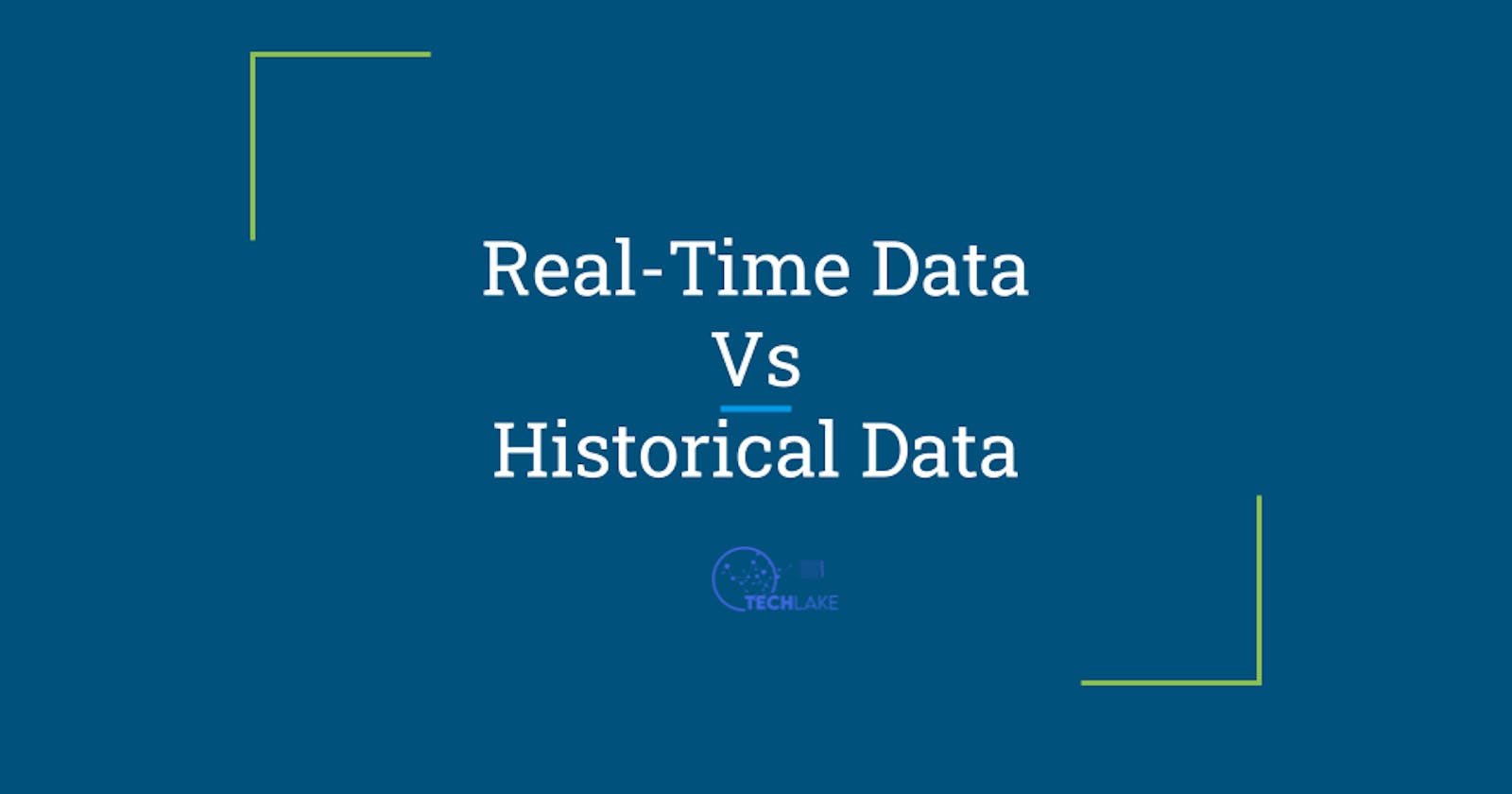Table of contents
Have you ever wondered why Real-time data is so relevant and sometimes it is not? Or asked yourself if Real-time is better than Historical data.
In this brief tutorial, we will discuss why real-time data is so relevant and in what cases, and also the challenges that we might face with data in the future.
Introduction
We are in the era we call the Big Data era, where all around us every microsecond, data is being generated.
Companies with more than 1,000 employees keep, on average, over 235 terabytes of data across 15 of the US economy's 17 sectors—more data than the US Library of Congress has. While continuing to flow at unprecedented rates from new devices and various points along the value chain, reams of data are also being generated through financial transactions and customer interactions.
Big data has the potential to develop over time into a brand-new kind of corporate asset that will cut across all business divisions and serve as the cornerstone of competition.
In Big Data, we have Real-Time data which represents data that is utilized and presented as it is acquired and Historical data represents data that is collected about past events, it is either processed and then stored or just stored in raw form.
Data and Time
Does data lose its value as time goes on? Or is Real-Time data more valuable to businesses than Historical data?
Mostly in businesses, most actionable, time-critical decisions are required to be made in real-time or in a matter of seconds.
Data is very valuable in real-time and it loses its value as time goes on, this doesn't mean that historical data is not valuable, it is valuable mostly when it comes to business intelligence.

Data has long been utilized by businesses that interact with customers to segment and target them. Real-time personalisation is made feasible by big data(Real-Time data), taking technology a significant step beyond what was recently regarded as state-of-the-art. A retailer of the future will be able to track each customer's online clickstream activity, update their preferences, and predict their future behaviour in real-time.
Once this is accomplished, they will be able to spot when clients are on the verge of making a purchase choice and prompt the transaction by bundling favoured products and offering rewards program discounts. Real-time targeting will encourage its most valuable consumers to buy more expensive goods by utilizing data from the retailer's multitier membership rewards program.
Real-time data is the really creme de la creme when we talk about the future of Big data.
Challenges of working with data
It is true to say that most of the data that is generated, after some time will have lost its value and this is because of the challenges of working with data - Big data.
When data is produced, it is difficult to store that data and avail it for analysis later as historical data because of:
Cost - Cost is a big issue when it comes to the storage of data, mostly in this big data era, and because of this most of the data is lost in the name of reducing the cost of storage. Data lost is Value lost
Performance - When you have a lot of data stored, the performance when it comes to querying is low, and analyzing this data requires a lot of work.
This challenge of where data generated is not entirely the data that is availed for analysis confirms to us that Real-time data is more valuable and the best data to use than historical data.
Conclusion
Data is generated everywhere, every second and it is becoming the new powerful brand that sets apart businesses in competition. But Real-time data carries the key to hacking decision-making and setting apart businesses in the competing market.
In this tutorial, we have discussed big data (Real-time data and Historical data) and also looked at how time affects data and the challenges of working with data. In conclusion, we have seen that utilizing Real-time data is more advantageous than keeping it for later use.

